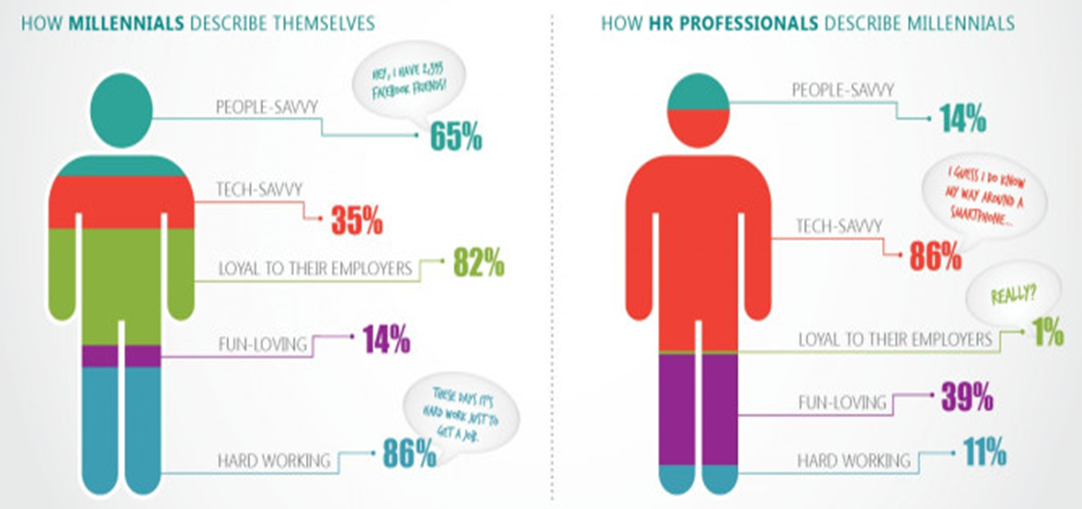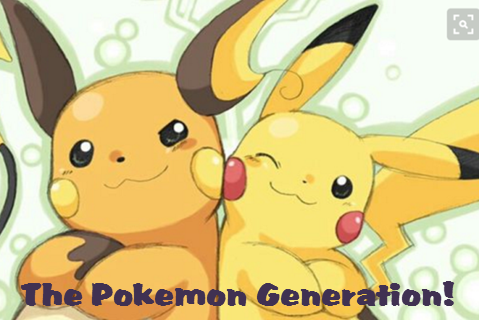Embracing the Millennials!
8 years ago Minds2Xcel 0
To my corporate partners who are passionately working with the Gen Ys, this is my advocacy – “The Gen Ys (Millennials) are our creation, so it’s our responsibility to embrace them. We cannot ever complain about our handicrafts!”.
During my several engagements with organisations on the subject of “The Millennial Challenge”, I am indeed glad that companies are paying more attention and doing more to help the multi-generational workforce to better engage and accommodate the social changes the Gen Y (Millennials) are bringing into their workplaces. Some other organisations would rather sweep the matter under the carpet; and assume that “life goes on” without planning to deal with it. Such an avoidance syndrome is not uncommon. Let’s do keep in mind that by another decade, over 50% of our workforce will be of Gen Ys (At the same time, the Gen Zs will also join the foray). They are presently bringing in waves of new social behaviours that will transform the way we manage our human resources going into the future.
While not reading too much into the tea-leaves, we can see and are experiencing changes within the workplace. The general sense is the feeling of angst overshadowing the positives about having Millennials in the Corporate World. Commonly cited issues on generational gaps and communication difficulties pretty much rule the discussions. Real or perceived, it smacks on the fact that we either embrace the Gen Y into the social system of the organisation, or face the consequences of employee engagement and retention challenges.
Why the sudden focus on the Gen Y, and eventually the Gen Z? It has been an intended deferred decision. We did not really want to deal with it then, although we know we have to someday. Now that the Gen Y dilemma is right at the doorstep, we are doing the same deferred attention for the Gen Z as we did to the Gen Y 20 years back. In fairness, the shifts of attitudes and behaviours with the Gen Y are probably more dramatic and significant, as they have been brought up very differently and in different social environments compared to that of the Boomers and Gen Xs.
Let’s consider some perspectives why they are rather unique compared to the Gen X. We accept that their social environments were very different – they were borne in better times, and enjoy the environment of economic and technological growth that we, of earlier generations did not really have. The more traditional ways the Gen Xs were brought up by the Boomers were replaced with more liberal and progressive ways. Gen Xs were taught bread and butter matters and to look for life-long employments; the Gen Y learn about aspirations and self-identity, to search for experience and immediate gratifications.
Let’s take a look at some of the perspectives from industry and social research on how Gen Ys are what they are today:
- Their easy access to technology makes them more tech savvy than the early generations. At the same time, information explosion allows them access to large amount of information and make them more global savvy. Having said that, excess of data does not necessarily mean useful information. This is where the Gen Y can learn to make better use of the hinterland of knowledge in the virtual space.
- The passion over Gaming results in Millennials who are more highly developed in their cognitive and motor capacity. They have greater intuitive and psychomotor reflexes and tend to make quicker judgement generally. They also assume they are doing a better job multi-tasking.
- Social networking is the new social order where the platforms for communication and interactions happen online. The new social behaviours allow them to be more “connected”. They have extended their networks more than the Gen X and Boomers, who rely more on direct contact interactions. The wide extent of their network does not mean having the same quality of engagements. Gen Y’s sense of affiliation is replaced with constant need for feedback and recognition. This is where the key difference lies between the generations. Gen Y believes they are very sociable (because of their wide virtual reach to many people). The expectation of being sociable for the earlier generations means having the actual close proximity interpersonal interactions.
- Helicopter parenting resulting in experiential starvation. This relates to the mother coddling parenting styles that hits on the Gen Y’s emotional independence and resilience. The over-protective nature of parenting devoid these Gen Ys of important life’s lessons needed to be better prepared for the complexity of the corporate world. Former generations lament that the Gen Y have not gone through the “school of hard knocks”, and they need more direction than discretion to manage and coach them.
- Being a generation of overly confident and self-absorbed individuals, Gen Y’s expectations of self and environment sometimes are unrealistic. They tend to look for instant gratification and being impatient, are more willing to move to explore different opportunities.
This picture taken from a beyond.com survey sums up the perception chasm in the workplace for the Millennials.

The work of the organisations and HR people is to find ways to bring out the best of the Millennials. They are high motivated and willing to put in their hard work if they believe the rewards meet their expectations. A comment I like to share reflects the views of many about the Millennials, “There may be many arrogant, egoistical and entitled youths in the workforce. At the same time there are just as many hard-working, humble Millennials out there who have proved and earned their badge of recognition. Let not the few corrupt our opinions of them”.
What can organisations and HR do for the Millennials to help them reach their potential and make significant contributions? Firstly it starts with the mindset of the executives and managers. They have to move away from the notion that the “problems are over the other side”, and whatever pre-conceived biases or apprehensions they have of Millennials, to throw them out of the windows. Being guarded is not going to help in reaching out to the Gen Y.
In the workshops I conduct for executives and managers, I recommend the following:
For the Organisation:
- Creating a more conducive environment and practices to embrace the strengths of the Gen Ys!
- Define a more progressive talent management philosophy (development and career) to fit these Millennials into the talent pipeline.
- Ensure more applicable Rewards policies to accommodate their need to feedback and early gratifications.
- Make sure there is clarity of linkage of rewards to performance. They need to learn about meeting expectations too.
- Enable knowledge transfer to the Millennials. Find coaches and mentors for them.
For the executives, managers and HR:
- Communicate and connect more with the Gen Y – Move away from the traditional platform. Use their Medias to connect with them. Give them constant affirmations and feedback, bite size. Don’t wait for them to initiate a conversation. They are not really comfortable.
- Know what motivates the Millennials – It is not necessarily always money that talks. They look for opportunities to showcase, to be creative, and to have a sense of worth. They want to be recognised.
- Set expectations right from the start – Be explicit, transparent and define the boundaries clearly. At the same them, empower them and find the middle grounds to contract with them.
- Re-engineer their behaviours – This is where more work needs to be done. Some of the behaviours they bring into the workplace are not necessarily appropriate. They have no clues what are expected of them (at least in the beginning) and unfortunately no one really tells them. They have to learn the corporate “Rules of the game” fast. Defines the Norms (and not their norms) and win them over. Stop the mentality of “fixing the Millennials”. Provide as much opportunities to mould their behaviours and give constant feedback on how they come across.
In conclusion, take time to learn about the Millennials in the organisations, and how we can develop them into the next generation leaders we want to have. It is worth it, and it is an experience to savour. I know it, because I am dealing with 2 Gen Ys and 2 Gen Zs at home. Every day is a new learning experience for me in dealing with them.
